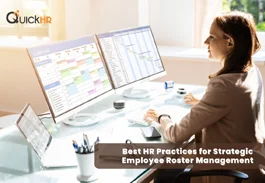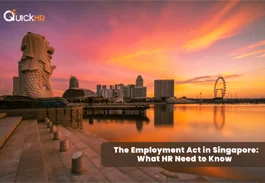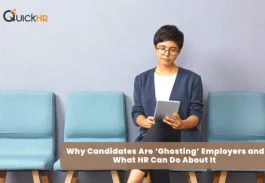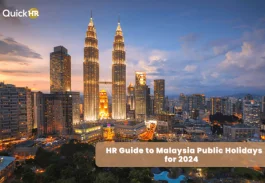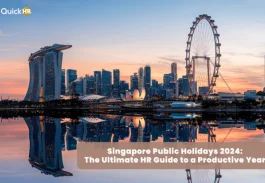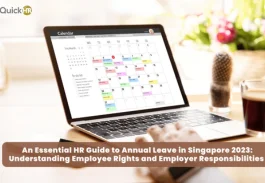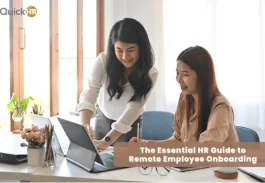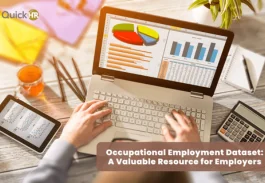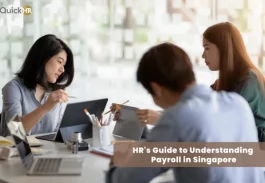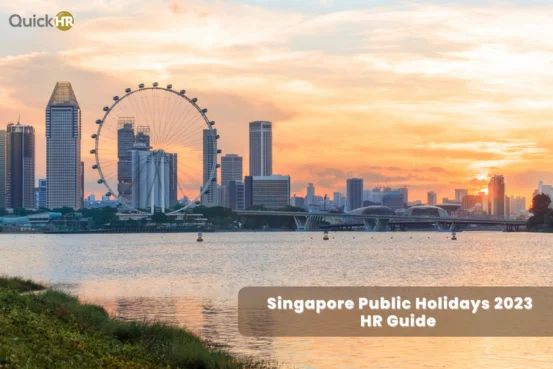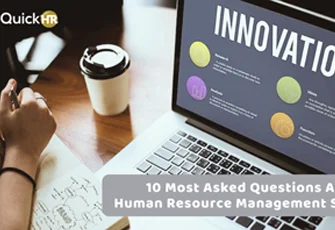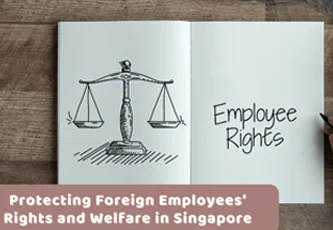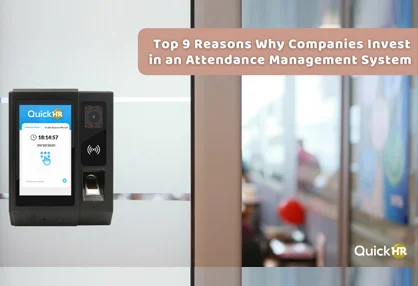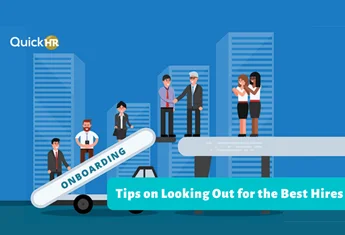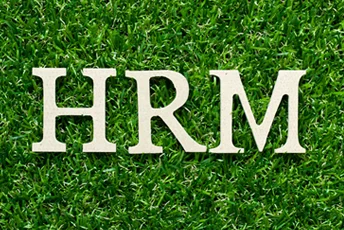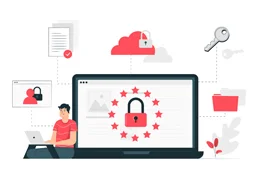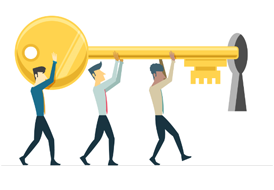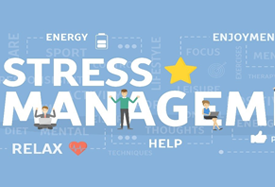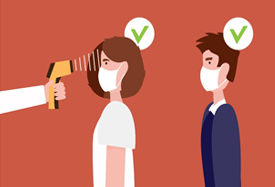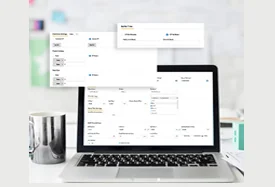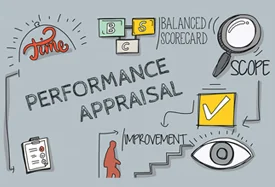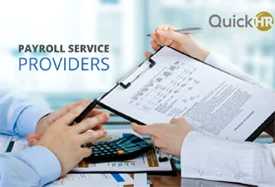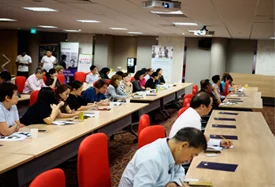
Managing Medical Leave in Singapore: The Ultimate Guide for HR Professionals
Posted on 27 March 2024 in Business | Suki Bajaj
With Singapore's growing focus on employee well-being amidst its fast-paced work culture, HR leaders may find navigating health-related policies, such as medical leave , to be a complex task.
But fear not, HR professionals! This guide tackles the most frequent questions about medical leave in Singapore, keeping you updated on the latest regulations.
Ensure your HR practices are compliant and keep your employees informed. Let's dive in!
In this guide, we’ll talk about:
Understanding Medical Leave in Singapore
Under the Employment Act, employees can get paid medical leave for outpatient care and hospitalization leave, each with specific requirements.
Medical leave consists of two components:
Paid Outpatient Sick Leave:
Requires a medical certificate from a registered practitioner to qualify.
Paid Hospitalization Leave:
Covers hospital care as deemed necessary by a hospital doctor. This includes being warded, day surgery, bed rest (e.g., pregnancy complications), or post-discharge recovery. It can also apply to mandatory quarantine orders.
Keep in mind that paid hospitalisation leave is not an extension of paid outpatient sick leave.
Keep your medical leave policies compliant and up-to-date with the latest MOM regulations
Get Started Today!Eligibility for Medical Leave
To be eligible for paid medical leave, an employee must:
- Be covered under the Employment Act.
- Have worked for their employer for at least 3 months.
- Inform their employer within 48 hours of their absence (unless impossible).
Paid hospitalization leave is only available for employees who are:
- Admitted to a hospital as an inpatient or for day surgery.
- Quarantined under any written law.
- Certified by a medical professional with admitting privileges at an approved hospital, including doctors from national specialty centres and ambulatory surgical centres.
An employee cannot apply for paid medical leave during:
- Rest days, public holidays, non-working days, or unpaid leave.
Medical Leave Entitlement
An employee qualifies for both paid outpatient sick leave and hospitalization leave if they meet the eligibility criteria above.
Here are the entitlements:
- Up to 14 days for paid outpatient sick leave.
- Up to 60 days for paid hospitalization leave (includes the 14-day outpatient entitlement).
An employee’s entitlement to paid medical leave is determined by the length of service. Those employed for 6 months or more receive the full entitlement.
Limits on Paid Medical Leave Days
The combined total of outpatient and hospitalization leave cannot exceed the medical leave entitlement of an employee.
For example, if an employee used 14 days of outpatient leave, they’d have 46 days of hospitalization leave remaining (60 total - 14 used).
Prorated Medical Leave for New Hires
New hires (under 6 months) receive prorated medical leave based on service length. The service starts on their first workday. They need at least 3 months to qualify for paid leave.
For instance, if they start working on February 13, 2023, any sick leave between February 13 to May 12, 2023, would be unpaid.
| Number of months of service completed | Entitled to paid sick leave on | Paid outpatient sick leave (days) | Paid hospitalisation leave (days) |
|---|---|---|---|
| 3 | 13 May | 5 | 15 |
| 4 | 13 June | 8 | 30 |
| 5 | 13 July | 11 | 45 |
| 6 and thereafter | 13 August | 14 | 60 |
Employer's Responsibilities
Employers play a crucial role by providing updated information about medical benefits and administering a compliant leave management, which includes acknowledging and approving valid medical leave requests.
Medical Reimbursements
Employees on approved paid sick leave will receive:
- Full salary continuation for the duration of their leave.
- Reimbursement for medical consultation fees incurred during their illness, provided:
- The medical certificate (MC) is issued by a public hospital or a company-approved clinic.
- The doctor's visit results in the employee needing to take at least one full day of paid sick leave.
Medical Reimbursement Limitations
Employees won't receive sick leave or reimbursement for consultations during public holidays, annual leave, rest days, or non-working days.
Furthermore, employers are not required to cover cosmetic procedures.
Salary During Sick Leave
- During paid hospitalization leave, an employee must receive their gross rate of pay.
- During paid outpatient leave, an employee must receive their gross rate of pay excluding any shift allowance.
Employee's Responsibilities
While employers ensure a healthy and supportive workplace, there are a few guidelines employees should follow for a smooth leave processing.
Notifying Employer for Medical Leave
- Inform their employer as soon as possible if they can't come to work. This allows the company to make alternative work arrangements.
- The Employment Act requires informing their employer within 48 hours of absence.
- Submit their medical certificate (MC) upon returning to work. Only MCs from government doctors, company doctors, or accredited institutions/clinics are valid.
Frequently Asked Questions
About Medical Leave In Singapore
-
What happens to unused medical leave and can it be carried over to the next year?
Unused medical leave, for both outpatient visits and hospitalization, does not accumulate and cannot be carried over to the next year. This discourages employees from stockpiling sick leave days.
-
How are employees covered if they become ill after using all their allotted medical leave?
If an employee falls ill after exhausting their medical leave entitlement, employers can offer several options:
Extended Unpaid Leave:
Both employer and employee must agree on a period of unpaid leave.
Flexible Work Arrangements:
Discuss alternative work arrangements, such as duty reassignment.
Medical Assessment:
Obtain a medical assessment to determine if the employee can continue working.
- If the employee doesn't have a medical certificate (MC), consult the employment contract regarding medical benefit reimbursement for consultations.
-
Do weekend days count towards their medical leave allowance?
If an employee doesn't work on weekends, then the medical leave application that spans over their rest days don't count towards the number of days applied.
-
Are part-time or probationary employees eligible for paid medical leave?
Yes, part-time and probationary employees are entitled to paid medical leave, but it might be prorated based on their employment contract and hours worked.
-
What happens if an employee needs to take medical leave during a half-day shift?
Taking a sick leave on a half-working day (e.g., Saturday) is considered one full day of sick leave entitlement.
-
What are the options if an employee gets sick while on annual leave?
If an employee falls sick while on annual leave, the employer may opt to discuss the possibility of converting sick days to annual leave.
-
Can an employee take medical leave during their notice period?
An employee is entitled to paid medical leave during their resignation notice period as long as they meet eligibility criteria (minimum service duration).
The entitlement depends on their length of service:
- For 6 completed months or more of service : they have the full entitlement.
- For 3 to 5 completed months of service : their medical leave will be pro-rated.
However, medical leave (paid or unpaid) taken while serving notice counts as part of the notice period.
-
Can an employee's contract be terminated for taking too much medical leave?
Termination of employment is a serious matter and should be based on relevant and objective performance issues, not solely on taking sick leave. Employers should be compassionate and supportive of employees who needs medical treatment.
However, in extreme situations, if an employer concludes the employee is too ill to perform the job duties, and their frequent absences negatively impact the company, termination with proper notice or pay in lieu of notice may be considered.
Employers can compensate terminated employees through contractual terms or severance pay (based on goodwill).
-
Can an employee with COVID-19 who has no remaining sick leave be placed on unpaid leave?
Employees with at least 6 months of service are generally entitled to up to 60 days of paid sick leave, which includes hospitalisation leave. This provision extends to those diagnosed with COVID-19, allowing them to utilize hospitalization leave even if they have not been hospitalised
As for new employees who have not yet accrued sufficient paid sick leave, employers can consider offering advanced leave.
In cases where advanced sick leave is granted, any unearned leave may be deducted from their salary if the employment contract is terminated before the accrual of such leave.
Employers are highly encouraged to be compassionate and flexible in supporting employees' needs.
-
If an employee is on medical leave due to a work-related injury under WICA, do they still accrue paid sick leave?
If an employee suffers a work-related injury and is on medical leave under the Work Injury Compensation Act (WICA), they cannot claim paid medical leave for the same condition. They should claim medical leave under WICA.
Simplify Medical Leave Management with QuickHR
Spend less time on paperwork, more time on your people
Here’s how QuickHR all-in-one Leave Management System can help you:
Effortless Tracking:
Keep tabs on employee leave balances (accrued and used) with a user-friendly system.
Real-Time Approvals:
Approve or deny leave requests instantly, keeping everyone informed.
MOM-Compliant Calculations:
Stay updated and compliant with the latest leave policies based on MOM regulations.
Detailed Reporting:
Gain valuable insights with in-depth reports on medical leave usage.
But that's not all! QuickHR Leave Management System connects seamlessly with other HR systems like payroll, attendance, expense claims, and performance evaluations. This ensures a unified HR experience for your entire organization.
This integrated approach empowers you to build a strong HR strategy with:
- Automation: Streamline workflows and eliminate manual tasks.
- Reduced Errors: Ensure all HR data is accurate and up to date.
- Increased Efficiency: Make HR tasks easier for both your team and your employees - freeing up valuable time and resources.
Focus on what matters most – your employees' well-being and your business success. Let QuickHR handle the rest!
Enjoying this content? Subscribe and we’ll send the latest updates and special offers directly to your inbox.

